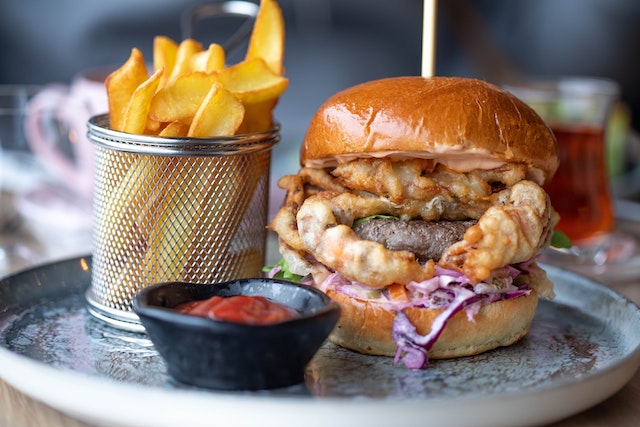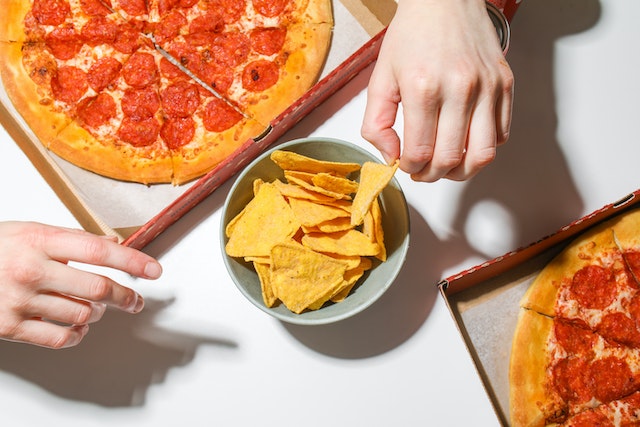
Maintaining a healthy weight is crucial for overall health and well-being. However, the thought of going on a restrictive diet can be overwhelming and difficult to sustain. Fortunately, many ways exist to lose weight without resorting to extreme diets. By making simple lifestyle changes, it is possible to shed unwanted pounds and improve your health. In this article, we will explore some easy methods and tips for losing weight without dieting. So, if you want to know “how to lose weight without diet, read this.
There is a correlation between obesity and a host of health issues. That includes heart disease, diabetes, and certain types of cancer. However, the idea of going on a strict diet can be daunting and unsustainable for many people. The good news is that dieting is not the only way to lose weight.
Identify the Factors That Contribute to Weight Gain
Several factors can contribute to the problem when it comes to weight gain. Understanding these factors can help you make more informed decisions about your lifestyle. It will help to make the necessary changes to maintain a healthy weight.
Sedentary Lifestyle
One of the primary factors contributing to weight gain is a sedentary lifestyle. This refers to a lack of physical activity or exercise. Many jobs require long hours sitting at a desk and technology makes it easy to be sedentary. It’s more important than ever to find ways to move your body. When you’re not moving enough, your body burns fewer calories. That can lead to weight gain.
Poor Eating Habits

Eating too many of the wrong types of food can also contribute to weight gain. Consuming foods that are high in calories, saturated fats, and sugar can cause you to gain weight. On the other hand, eating a balanced diet with plenty of fruits, vegetables, and lean protein can help you maintain a healthy body weight.
Lack of Sleep
Studies have shown that a lack of sleep can contribute to weight gain. The hunger hormone ghrelin rises when people don’t get enough sleep. That might make you hungrier and increase your desire for unhealthy foods. Additionally, lack of sleep can disrupt your metabolism. That makes it harder for your body to burn calories.
Stress
Chronic stress can also contribute to weight gain. When you’re stressed, your body produces the hormone cortisol. It has the potential to make you hungrier than usual. Additionally, stress can lead to emotional eating, where you turn to food as a way to cope with your emotions.
12 Tips for Weight Loss Without Diet
Weight gain is easy, but it’s tough to lose weight. Here, we will show you some tips on how to lose weight without dieting.
Drink Plenty of Water
Staying hydrated is a crucial part of leading a healthy life. For many body processes, water is a must. This encompasses the processes of eating, metabolizing, and creating energy. The elimination of waste products and the maintenance of a radiant complexion are two additional benefits.
Water consumption has been linked to improved weight loss efforts. If you drink water before eating, you may experience satiety more quickly. That may help you consume fewer calories every day. In fact, participants who drank water before meals lost more weight than those who didn’t, according to research published in the journal Obesity.
Keeping hydrated throughout the day might also reduce the need for sugary drinks. The high-calorie content may contribute to weight gain. Additionally, water consumption can aid in mitigating swelling and fluid retention. It will help you look and feel your best regardless of your appearance.
Water intake recommendations are quite flexible and may differ from person to person. Eight glasses of water a day is recommended. But if you’re sweating, you might want to increase your water intake.
While increasing your water intake might help you shed pounds, it is not a magic bullet. You still need to eat healthy foods and exercise frequently if you want to reduce weight. However, one easy and efficient method is to just drink more water. It can help you lose weight and boost your health in general.
Eat More Protein
Increasing your protein consumption is a great approach to help you lose weight without having to go on a strict diet. The body needs protein to function properly. It can help curb hunger, make you feel full faster, and speed up your metabolism. Losing weight might result from that. It’s useful for those trying to shed pounds since it aids in muscle preservation. Lean meats, poultry, fish, eggs, dairy products, legumes, nuts, and seeds are all excellent protein sources. As part of a well-rounded and nutritious diet, protein is essential.
Reduce Your Portion Sizes

One easy and practical strategy is to cut back on serving portions. It helps you lose weight without having to make any drastic changes to the foods you eat. Many people struggle with their weight because they consume too much. As a result, you may end up ingesting more calories than your body requires. Gaining weight may be the outcome of it.
Many people eat more than they need to in order to feel full. Use smaller dishes and bowls to cut down on serving sizes. By doing so, you may eat fewer calories without feeling deprived.
Measuring your meals is another option for controlling your portion proportions. Proper serving sizes may be determined with the use of measuring cups, a food scale, or even just your own two hands. For instance, a palm-sized portion of protein, whereas a fist-sized portion of veggies is considered an appropriate portion size.
Eat Slowly
Eating slowly is an important habit to cultivate for both digestion and weight loss. Many people eat quickly and mindlessly. That can lead to overeating and digestive discomfort.
Eating more slowly allows your stomach and brain more time to communicate when you’re full. It can help prevent overeating. It takes about 20 minutes for your brain to receive the signal that you’re satisfied. Spending more time at each meal might help you feel satisfied with less food.
Eating slowly also allows you to enjoy your food more fully. When you take the time to savor each bite and appreciate your food’s flavors and textures, you may feel more satisfied and less inclined to overeat.
In addition to supporting weight loss, eating slowly can also improve digestion. If you chew your meal completely, you can reduce its size. That makes it easier for your body to digest and absorb nutrients.
To start eating more slowly, try putting down your utensils between bites. Take your time and savor each bite. You may also find taking a few deep breaths helpful before starting your meal. It will help relax your body and focus your attention on your food.
It’s also important to create an environment that supports slow eating. Try to eat in a calm, quiet environment without distractions like television or phones. This can help you stay mindful of your food and enjoy your meal more fully.
Get Enough Sleep
Getting enough sleep is an often overlooked but crucial aspect of weight loss and overall health. Poor sleep can disrupt hormones that regulate appetite and metabolism. It can lead to overeating and weight gain.
When you’re sleep-deprived, your body produces more ghrelin. It is a hormone that stimulates hunger, and less leptin, a hormone that signals fullness. This can lead to increased cravings and overeating. That might make it harder to keep the weight where it should be.
In addition to affecting appetite hormones, poor sleep can also lead to decreased energy levels. It also reduces motivation to exercise. This can further contribute to weight gain and difficulty losing weight.
Aim for 7-9 hours of sleep per night to ensure you get enough sleep. Create a routine for your sleep time and adhere to it. For example, avoid screens before bedtime and create a relaxing bedtime routine. It can also help improve sleep quality.
There are several options to consider if you are having difficulties falling or staying asleep. That includes practicing relaxation techniques like meditation or deep breathing. It also includes reducing caffeine intake and avoiding large meals or alcohol before bedtime. Alcohol contains liquid calories. It can increase your body fat.
Be Mindful of Your Snacks

Healthy diets often include snacking. It provides energy and nutrients between meals. However, being mindful of your snack choices and portions is important to avoid overeating and weight gain.
One way to be mindful of your snacks is to plan ahead. Pack your own healthy options like fresh fruit, raw vegetables with hummus, or nuts and seeds. Do not rely on vending machines or convenience stores for snacks. Avoid taking unhealthy foods.
Minding your portions is also crucial. Snacks should be small enough to satisfy your hunger without contributing too many extra calories. Pre-portioning snacks into small containers or baggies can help you avoid overeating.
Another way to be mindful of your snacks is to choose nutrient-dense options. Try to avoid high calorie, low nutrient snacks like chips or candy. Opt for options that provide protein, fiber, and healthy fats. For example, hard-boiled eggs, yogurt with berries, or sliced avocado on whole grain crackers.
It’s also important to pay attention to your hunger cues when snacking. Are you truly hungry, or are you snacking out of boredom or habit? Take a few deep breaths and check in with your body before reaching for a snack. It may aid in your decision-making process. It’s important to avoid mindlessly snacking while doing other activities. This can lead to overeating without even realizing it.
Find Healthier Alternatives
Finding healthier alternatives is a key strategy for weight loss without dieting. You can reduce your calorie intake without sacrificing taste or satisfaction. Just make simple substitutions in your diet.
One way to find healthier alternatives is to swap out high calorie, high fat ingredients for lower calorie options. Greek yogurt, for instance, can be used for sour cream.
Choose whole, unprocessed foods over packaged or processed options. This is another way to find healthier alternatives. Whole foods like fruits, vegetables, whole grains, and lean proteins provide more nutrients. It also provides significantly fewer calories than processed foods.
You can also experiment with different cooking methods. It will help you to make healthier versions of your favorite foods. For example, you can bake or grill instead of fry. Also can use herbs and spices instead of salt and butter for flavor.
When it comes to snacks and desserts, there are also many healthier options available. Instead of reaching for candy or chips, try snacking on fresh fruit. For dessert, consider making your own healthier versions of your favorite treats. For example, banana “ice cream.”
Eat More Fiber
Eating more fiber is a simple and effective way to support weight loss. Fiber is a type of carbohydrate. It is found in plant foods. Fruits, veggies, whole grains, beans, and nuts all fall under this category. Try to avoid junk food with less fiber. Eating fewer calories may help you with this.
One of the primary benefits of fiber is that it helps you feel full and satisfied. That can help reduce overeating and support weight loss. Fiber also slows down digestion. It can help stabilize blood sugar levels and prevent spikes in hunger and cravings.
In addition to supporting weight loss, fiber also has many other health benefits. It can improve digestion, reduce the risk of heart disease, and lower cholesterol levels.
To increase your fiber intake, try incorporating more fruits and vegetables into your diet. Eat high fiber content like berries, broccoli, and sweet potatoes. Choose whole grains over refined grains. For example, whole wheat bread, brown rice, and quinoa.
Legumes, such as beans, lentils, and chickpeas, are also a great source of fiber. It can be added to soups, salads, and other dishes for extra nutrition.
It’s important to increase your fiber intake gradually. Get plenty of fluids to ease tummy trouble. Aim for at least 30-40 grams of fiber per day, and be sure to include a variety of fiber-rich foods in your diet.
Don’t Skip Meals
Skipping meals is a common weight loss strategy, but it can actually be counterproductive. Skipping meals increases the likelihood that you will overeat at your next meal. That can lead to an increase in overall calorie intake. You can remove unhealthy foods from your diet plan.
Skipping meals is also associated with low blood sugar levels. That will cause feelings of fatigue, dizziness, and difficulty concentrating. Sticking to your weight loss goals and maintaining a healthy lifestyle can make it harder.
Instead of skipping meals, focus on making healthy choices and controlling portion sizes. Eating frequent, smaller meals throughout the day can help keep you satisfied. It will prevent overeating. Protein, carbs, and healthy fats should all make an appearance at every meal.
It’s also important to listen to your body’s hunger cues and eat when you are truly hungry. Waiting too long between meals can lead to overeating and potential weight gain. If you find yourself feeling hungry between meals, try snacking on healthy options. For example, fresh fruit, raw vegetables, or nuts and seeds.
Stay Active

Staying active is a crucial component of weight loss without dieting. Getting in some exercise on a regular basis is a great way to burn calories and become in shape. It also has many additional positive effects on health. That includes improved cardiovascular health, better mood, and increased energy levels.
There are many ways to stay active, even if you don’t have access to a gym or exercise equipment. Simple activities like walking, jogging, cycling, or swimming can be effective forms of cardio exercise. That can be a good calorie burner and aid in the weight reduction process.
Strength training is another important component of a balanced exercise routine. By building lean muscle mass, you can boost your metabolism and burn more calories at rest. Boosting muscle mass is something you can do regularly. You may employ push-ups, squats, and lunges, all of which use only your body weight. You may also utilize things like weights and resistance bands.
It’s important to stay active throughout the day by incorporating more movement into your daily routine. Take the stairs instead of the elevator. Get some exercise on your lunch break or park further away from your destination. Every little bit of activity can add up and support your weight loss goals.
Never let the thought of exercising deter you. Make time every week for things you really look forward to doing. Whether it’s dancing, hiking, or playing sports, staying active can be fun and rewarding.
Get Support
Getting support is an important aspect of weight loss without dieting. Having people who have your back may be a great source of inspiration, responsibility, and morale. It will help you stay on track and reach your goals.
There are many ways to get support on your weight loss journey. You can join a support group, whether in-person or online. It helps to connect with others who are also working towards weight loss and share tips and advice. Consult a health professional, such as a trainer or a dietitian. It can provide guidance and accountability to help you stay on track with your exercise and nutrition goals.
It’s also important to be kind to yourself and acknowledge that weight loss is not always a linear journey. Setbacks and slip-ups are normal, but having a support system in place can help you get back on track and continue working towards your goals.
Keep a Food Diary
Keeping a food diary is a helpful tool for weight loss without dieting. You can gain insight into your eating habits by tracking what you eat. It will make more informed choices about your diet.
Keeping a food journal might shed light on hidden eating habits. For example, times of day when you are more likely to overeat or certain types of foods that trigger cravings. With this information, you can make changes to your diet to support your weight loss goals.
Keeping a food diary can also help you stay accountable for what you eat. When you write down everything you eat, you are more likely to be mindful of your choices. You can also make healthier decisions. Additionally, seeing the progress, you are making can motivate you. It’s a great way to ensure you don’t stray from your weight reduction plan.
Just record everything you consume in a day to create a food diary. Write the portion sizes and any notes about your hunger levels or how you felt after eating. You can use a notebook or a mobile app to track your food intake.
Conclusion
It is possible to lose weight without dieting. All you need is a combination of a healthy lifestyle. It should promote a balanced diet and regular activity. You can lose weight in different ways. Drinking plenty of water, eating fewer calories, and having a good sleep are some of the ways. Be mindful of your snacks. Take fiber for weight loss. Stay active and motivated. Avoid taking more food intake, sugary drinks, and liquid calories.












